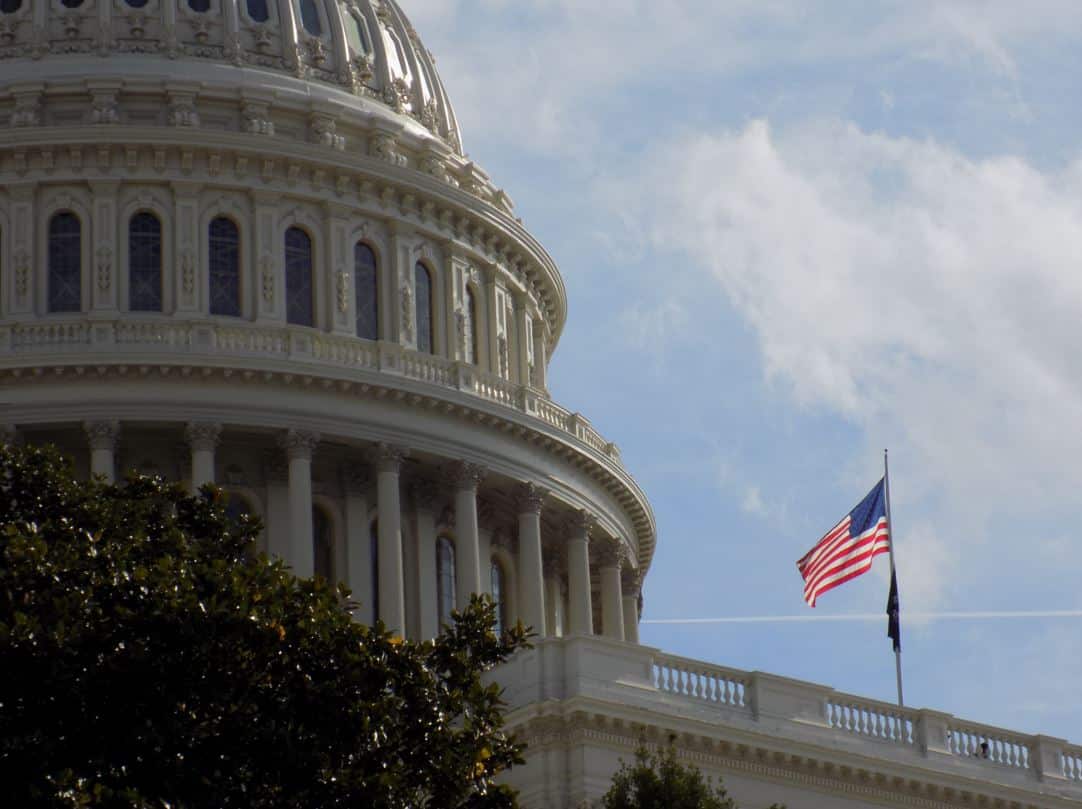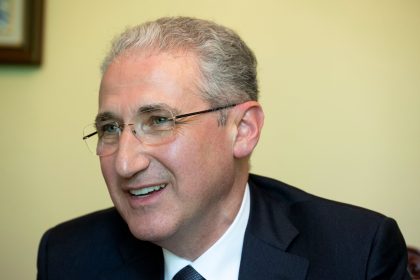GAO Presses Lawmakers to Improve DOE Carbon Capture Projects

WASHINGTON — The Government Accountability Office is pressing lawmakers to institute legislation that would improve oversight and accountability of the Department of Energy’s carbon capture and storage demonstration project expenditures.
GAO conducted a study of DOE’s investment of $1.1 billion in carbon capture and storage projections which were found to have varying degrees of success. In the report, GAO found that CCS projects that centered around coal were generally less successful than projects at industrial facilities like chemical plants.
“Since 2009, the Department of Energy has invested $1.1 billion in 11 projects to show how carbon dioxide emissions from coal-power and industrial facilities could be captured and stored,” the text of the report read. “DOE initially committed to eight coal projects, mostly new power plants with carbon-capture equipment. But seven were not built, largely due to factors that made coal power less economically viable.”
Further, GAO found that senior management officials at the DOE bypassed cost controls to support its floundering coal projects, leading to roughly an extra $300 million being spent on four coal facilities that were never completed. In all, DOE dispensed almost $684 million across eight coal projects which culminated in just one operational facility.
Of those eight planned projects, two were withdrawn prior to receiving any funding and one was withdrawn after receiving roughly $17 million in funding while another was built but ultimately ceased operations in 2020 due to “changing economic conditions,” according to the report. DOE eventually canceled funding agreements with the four remaining projects prior to their construction.
In contrast, DOE provided around $438 million to three projects intended to capture and store carbon from industrial facilities, one of which was canceled. Consequently, GAO identified several significant risks in the department’s management of coal CCS demonstration projects and accordingly made recommendations to rectify them.
“DOE’s process for selecting coal projects and negotiating funding agreements increased the risks that DOE would fund projects unlikely to succeed,” GAO officials said in the report’s recommendations. “Specifically, DOE fully committed to coal projects at their initial selection as opposed to allowing time for further review, as it did for selected industrial CCS projects.”
GAO continued, “Additionally, according to DOE officials, the department used expedited time frames for coal project negotiations—less than three months as opposed to up to a year—based on DOE’s desire to begin spending American Recovery and Reinvestment Act of 2009 funds quickly.”
GAO found that these actions hindered the department’s capacity to recognize and solve the inherent technical and financial risks of the projects, a principle which is cited in DOE guidance. Because the coal projects were not completed largely because of factors affecting their economic viability, GAO recommended the department utilize a “multiphase down-selection process” in which it selects certain projects for initial funding and then selects a subset of those projects for full funding, rather than fully funding the projects from the start.
By evading cost control measures at the direction of the department’s senior leadership, the department risks spending considerable amounts of taxpayer funds on CCS demonstrations that are unlikely to succeed. In response, GAO recommended the department more consistently adhere to its principles outlined in DOE’s Guide to Financial Assistance for future CCS demonstration projects.
GAO recommended in particular the department manage and report projects against conventional scopes, schedules and budgets, just as they would with non-carbon capture project demonstrations. DOE neither agreed nor disagreed with the GAO recommendations, as the department is working to establish a newly founded “Office of Clean Energy Solutions” which Deputy CFO Christopher Johns said would be better suited to evaluate the report.
As previously reported by The Well News, the Biden administration is moving to end federal overseas support for building coal plants and other carbon-intensive projects in an attempt to more closely adhere to the agreements made during the United Nations climate change conference. In July, bipartisan legislation was introduced to grant tax credits to energy companies that innovate carbon capture or energy storage technology, further signaling a shift in domestic policy towards reward climate change mitigation efforts.
“Key scientific assessments have underscored the urgency of reducing emissions of carbon dioxide, the most significant greenhouse gas, to help mitigate the negative effects of climate change,” the GAO report concluded. “CCS technologies have the potential to reduce CO2 emissions from sources such as coal plants and industrial facilities. Since 2009, DOE has sought to establish the viability of CCS technologies through various demonstration projects. The 2021 Infrastructure Investment and Jobs Act authorized and appropriated billions of dollars in new investments in CCS demonstration projects.”
Reece can be reached at [email protected].

























